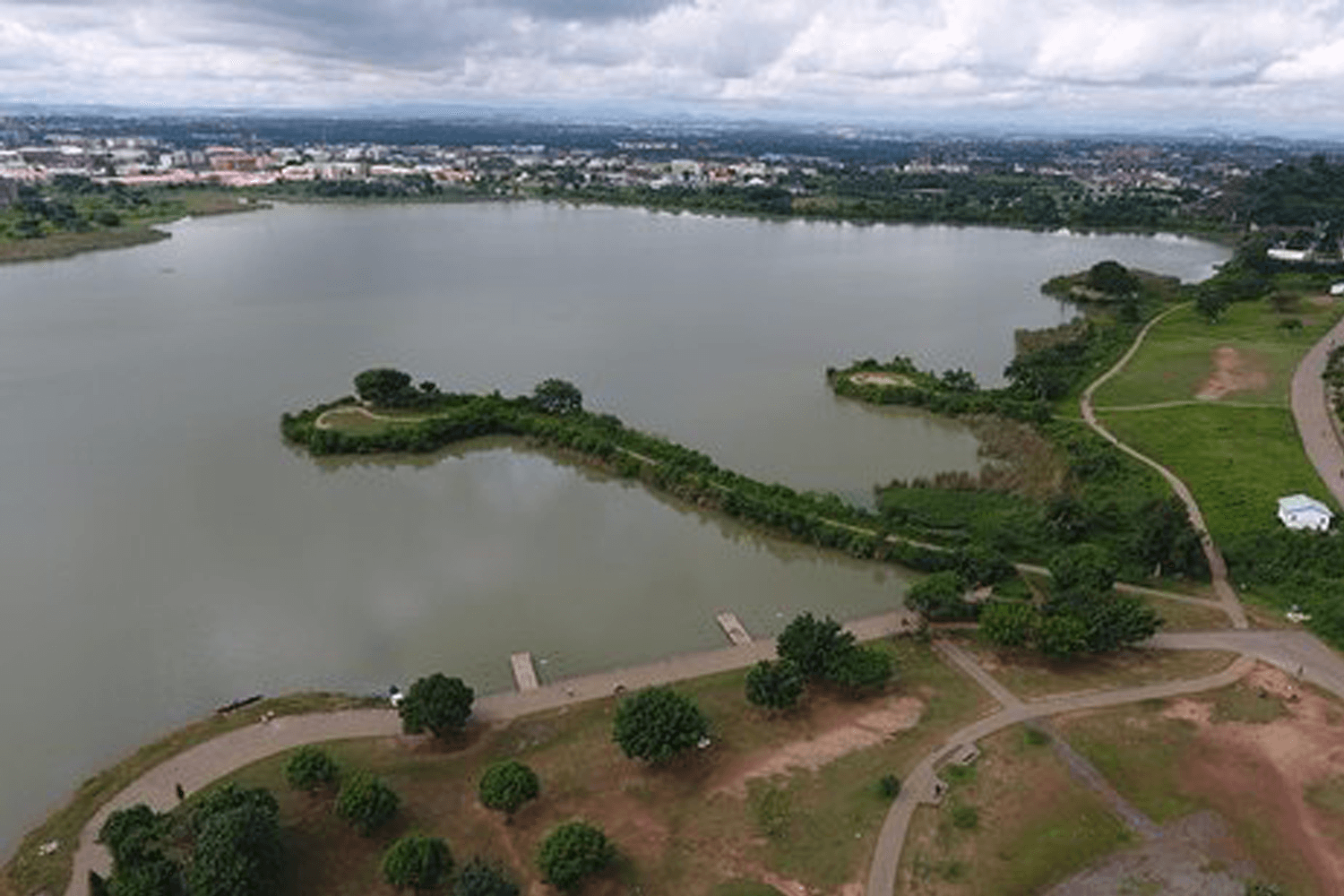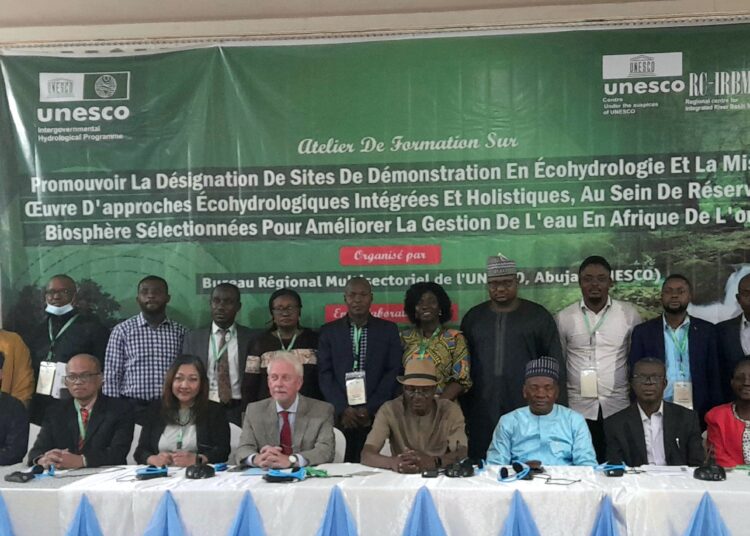The Regional Centre for Integrated River Basin Management (RC-IRBM), in collaboration with the United Nations Educational, Scientific and Cultural Organisation (UNESCO), the Ministry of Water Resources and the National Water Resources Institute (NWRI), has organised a workshop aimed at achieving water quality and security in Nigeria.
The workshop held in Abuja yesterday on Implementation of Integrated and Holistic Eco-hydrological Approaches for Improved Water Management in West Africa.
The Director General, National Water Resources Institute (NWRI), Prof. Emmanuel Adanu in his address said the call is to sensitive and provide knowledge about what Ecohydrology is.
He explained that Ecohydrology is an integrated way of using nature to purify water instead of other materials used in treating water sometimes.
“This training is to see how government can use other ways of managing our water. Integrated water resources management includes all aspects. This conference is to sensitize people about the importance of making our water clean, using all aspects of knowledge inside the management. The call on government is to sensitize people, to commit themselves in a different way than the normal water provision without integrated approach to it.”
On the benefit and choice of Jabi Lake for Ecohydrology demonstration, Professor Emmanuel said; “Jabi lake is in Nigeria, so if its taken and properly done is already of benefit. But that’s not the only thing, when we do this and people see it, it can be replicated anywhere in the country. You can apply Ecohydrology to purify stagnant water or water deposited in unnecessary places. No water is useless until it is impure, so if you make it pure it becomes uselful. So Ecohydrology is one of the methods used to purify our water.”
The Director, River Basin Operations & Inspectorate under The Federal Minister of Water Resources, John Ochigbo said there are a lot of threat to our water resources due to anti-pyrogenic activities. “We are demonstrating and promoting various tools towards effective management of our water resources and Ecohydrology is one of the tools being introduced to our water experts.
Ochibo who represented the Minister of Water Resources, Hon Suleiman Adamu said “UNESCO supported Nigeria in 2021 to introduce the concept of ecohydrology to Nigeria and to West Africa sub-regions. This year, they’re scaling up to identify demonstration sites and to promote the use of these sites. For Nigeria, Jabi Lake has been approved by UNESCO as a demonstration site for ecohydrology, the Ministry is here to support UNESCO office towards the development of this centre.
“We are encouraging relevant water agencies in Nigerian and across West Africa to make use of this site to build their capacity to be able handle water resources issues.”
Ochigbo explained that Ecohydrology is a science that deals with the interaction between hydrology – that is water and the environment. He said there are a lot of interactions between the environment and human beings, adding that Ecohydrology is a scientific tool that is deployed to manage this interaction effectively for the benefit of man.
On the choice of Jabi Lake, he said the lake has important water resource that needs to be protected.
“Currently the lake is being abused through discharges from homes and industries, and so we selected it as a demonstration site to be able to clean it up to make it beneficial to the metropolis.”
Also speaking, Fellow of the Institute for Environment and Development, Dr Rahmah Elfithri said there’s need for establishment of new Ecohydrology sites in line UNESCO IHP 9 2022/2029 Science for changing environment towards achieving water security.

“Currently we have 30 demonstration sites in the world. We have only three in Africa –which is two in Ethopia and one in Kenya, so we want to promote more Ecohydrology demonstration sites. Through this workshop, some countries in Africa will have new demonstration sites. Our target in Nigeria is the Jabi Lake.
According to her, UNESCO target is to have or promote Ecohydrology implementation in UNESCO designated sites at natural and geological sites to enhance the ecosystem potentials in these specific sites.
“UNESCO has a strong support for this establishment of Ecohydrology designated site in Jabi lake. Also we have the confidence to implement this in Jabi lake. I can see how enthusiastic stakeholders and the government of Nigeria has shown so far. So if all stakeholders will join hands to implement ecohydrology in Jabi Lake, so we can improve the ecosystem and environment condition in Jabi lake.
Elfithri called on local communities and stakeholders to support the project as the government cannot do it alone towards ensuring the ecosystem is in good water quality.
The Director, Dakar Regional Office and QIC Abuja Regional Office, Mr Dimitri SANGA in a welcome address said it is well known that water is at the core of sustainable development and is critical for socio-economic development, healthy ecosystem for human survival.
“Water is vital for reducing the global burden of diseases and improving the health, welfare and productivity of populations. The incidence of COVID-19 has shown how access to clean and safe water and sanitation is critical and indispensable to avoid spread of the virus.
SANGA further said given the importance of water, UNESCO is working to build scientific knowledge base, to help its member state manage their water resources in a sustainable manner, through the intergovernmental Hydrology Programme (UNESCO-IHP).
“The present training builds on that of 2021, to promote Ecohydrology in action in UNESCO designated site, as well as strengthen capacity of water experts in West Africa on implementing integrated, holistic and Ecohydrology approaches for improved water management.”
According to him, the result of the workshop is expected to support improved water management and further enhance the network of demonstration sites and basins.











